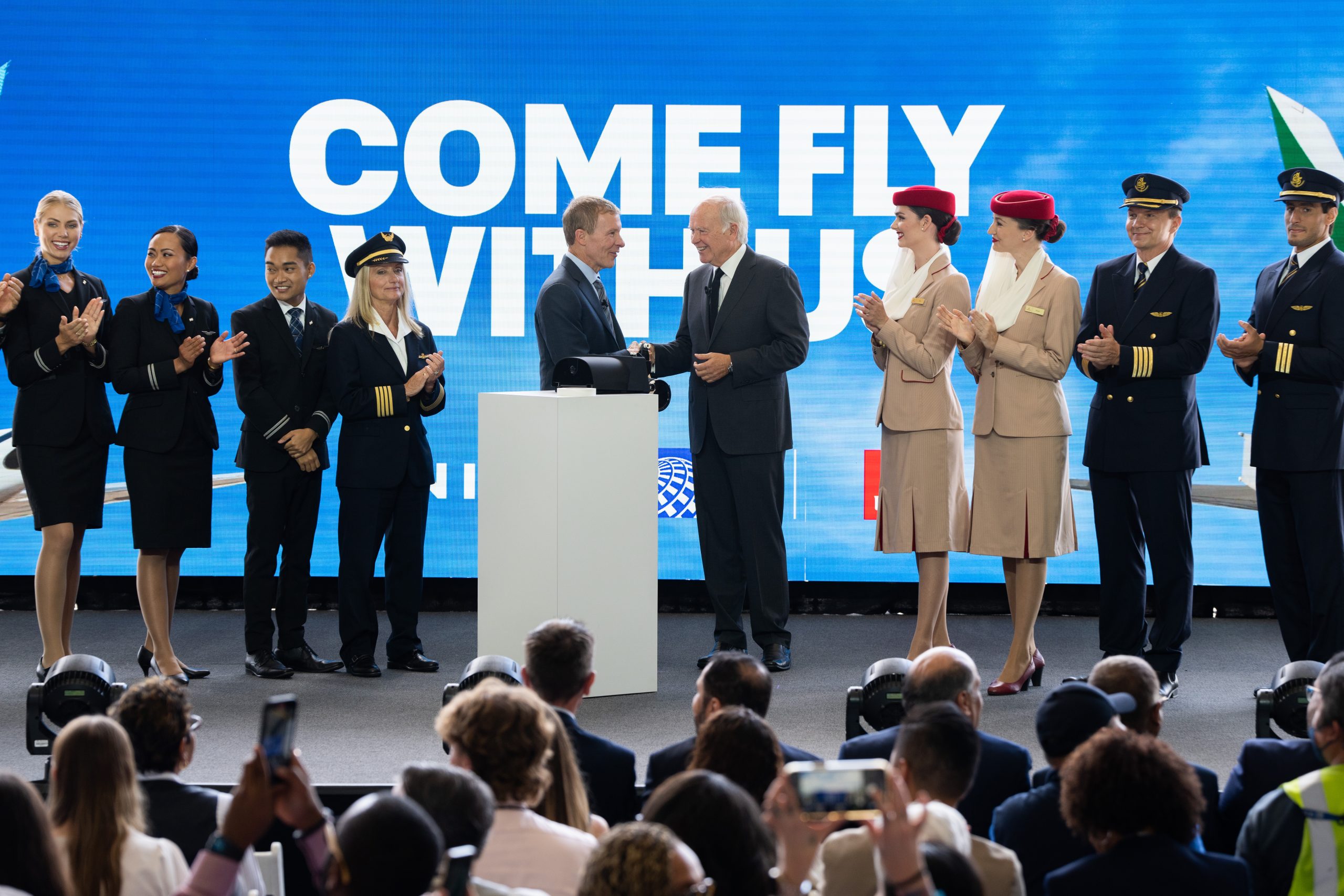
sirtimclarkandscottkirby
Emirates and United Airlines are requesting approval from the US Department of Transportation (DoT) to codeshare a combined 300 flights. The request was filed in a joint application on January 5 and follows the announcement of the extensive partnership between the two airlines on September 14. Emirates/United codeshare plan covers 300 routes.
Back in September, Emirates President and CEO Sir Tim Clark and United CEO Scott Kirby (main picture) said that its customers would be able to connect on United’s network from November, but the codeshare will only become effective after approval by the DoT. “Because the Joint Applicants would like to begin marketing their codeshare service as soon as possible, they request that the Department expedite its approval of this application,” Emirates and United said in the filing.
The filing says: “Granting this application is in the public interest because it will provide substantial consumer benefits by enhancing the service options available to the U.S. traveling public for travel between the US, UAE, and points beyond. United will be able to offer convenient additional online services between the U.S. and points in UAE and beyond, which will enhance competition and travel options available to consumers. Further, the Department has granted similar authority to numerous codeshare partnerships involving US and foreign carriers, recognizing the important public benefits that are produced.”
EK codeshare from three US hubs
With the codeshare agreement, Emirates intends to place its “EK” code on “(a) United and United Express flights operating from certain of United’s US hubs to points in the US and points beyond the US across North, Central, South America, and the Caribbean, and to facilitate international air travel between these points and the UAE and points beyond the UAE; and (b) on United flights operated from intermediate points to the US for the facilitation of international air travel from the UAE to the US and points beyond.”
This codeshare covers 126 flights from Chicago, 105 from Houston, and 41 from San Francisco. The destinations are not limited but are part of phase 1 only. “The parties will provide 30 days’ notice of additional codesharing to non-open skies points that may be launched in the future.”
United Airlines will place its “UA” code on “(a) Emirates flights operating from Dubai to points in the UAE and points beyond the UAE across Africa, Middle East, India, and other points in South East Asia, and to facilitate international air travel between these points and the U.S. and points beyond the US; and (b) Emirates flights operated from intermediate points to the UAE for the facilitation of international air travel from the US to the UAE and points beyond. Finally, both United and Emirates will place their respective designator codes on each other’s operations between the US and the UAE.”
United codeshare on 27 routes
The United codeshare covers 27 destinations on the Emirates’ network, most of them to India and the sub-Indian continent as well as the Gulf region and Africa. United also requests to authorize United “to provide codeshare services on flights operated by Emirates to points within and beyond UAE for points neither in Open Skies countries nor listed in United’s certificate or exemption authority upon 30 days’ notification to the Department, as United has been allowed to do with its other codeshare partners.”
The two airlines request that “the statements of authorization be issued for an indefinite period, so long as their codeshare agreement continues in effect, and will notify the Department if any agreement should cease to be effective.”
Views: 6



